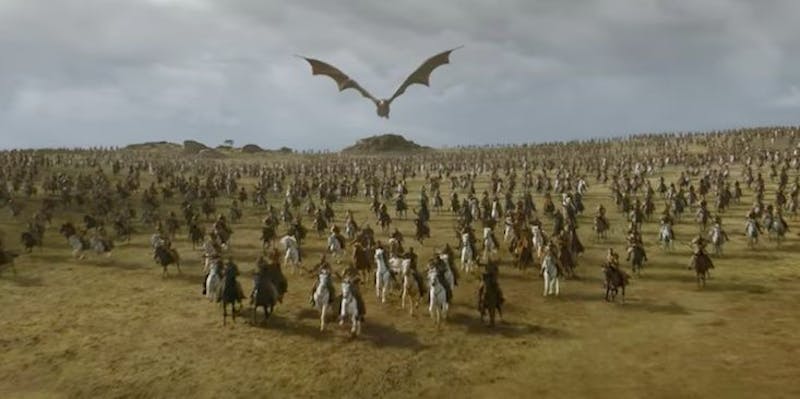 |
| A scene from Game of Thrones. |
Wednesday, May 15, 2019
The linguists behind conlangs
Ever wondered about the science behind made-up languages like Klingon (Star Trek), Dothraki (Game of Thrones), and Na'vi (Avatar)? This fascinating article introduces you to the minds that have created some of the world's most popular "conlangs," or constructed languages.
Wednesday, April 24, 2019
Spring has sprung 🌸
The countdown is over! To celebrate, here's some fun facts about springtime.

There are various technical definitions of spring, but local usage of the term varies according to local climate, cultures and customs.
When it is spring in the Northern Hemisphere, it will be autumn in the Southern Hemisphere.
In spring, the Earth’s axis is tilted toward the sun, increasing the number of daylight hours and bringing warmer weather.
Before Spring was called Spring, it was called Lent in Old English. Starting in the 14th century, that time of year was called “springing time”—a reference to plants “springing” from the ground. In the 15th century this got shortened to “spring-time,” and then further shortened in the 16th century to just “spring.”
Most wild herbivores (plant eaters), who live in season parts of the world, have babies in the early spring. This give the babies the best chance of growing large, strong, and putting on some fat before winter.
On the first day of spring, a person at the North Pole would see the sun skimming across the horizon, beginning six months of uninterrupted daylight. A person at the South Pole would see the sun skimming across the horizon, signaling the start of six months of darkness.
Thanks to Just Fun Facts.
There are various technical definitions of spring, but local usage of the term varies according to local climate, cultures and customs.
When it is spring in the Northern Hemisphere, it will be autumn in the Southern Hemisphere.
In spring, the Earth’s axis is tilted toward the sun, increasing the number of daylight hours and bringing warmer weather.
Before Spring was called Spring, it was called Lent in Old English. Starting in the 14th century, that time of year was called “springing time”—a reference to plants “springing” from the ground. In the 15th century this got shortened to “spring-time,” and then further shortened in the 16th century to just “spring.”
Most wild herbivores (plant eaters), who live in season parts of the world, have babies in the early spring. This give the babies the best chance of growing large, strong, and putting on some fat before winter.
On the first day of spring, a person at the North Pole would see the sun skimming across the horizon, beginning six months of uninterrupted daylight. A person at the South Pole would see the sun skimming across the horizon, signaling the start of six months of darkness.
Thanks to Just Fun Facts.
Thursday, January 31, 2019
I'm over winter
Here in the nation's capital, we're in the middle of a polar vortex, leaving temperatures at a frosty 10 degrees Fahrenheit. Spring, and the longer days and warmer temperatures that come with it, can't get here soon enough! In fact, I've already started the countdown to what I consider the unofficial start of spring: Daylight Saving Time.

As of the time of this post, there's a little over a month left before the days start getting longer. 'Til then, here's some info on the polar vortex we're experiencing.

As of the time of this post, there's a little over a month left before the days start getting longer. 'Til then, here's some info on the polar vortex we're experiencing.
Subscribe to:
Comments (Atom)
